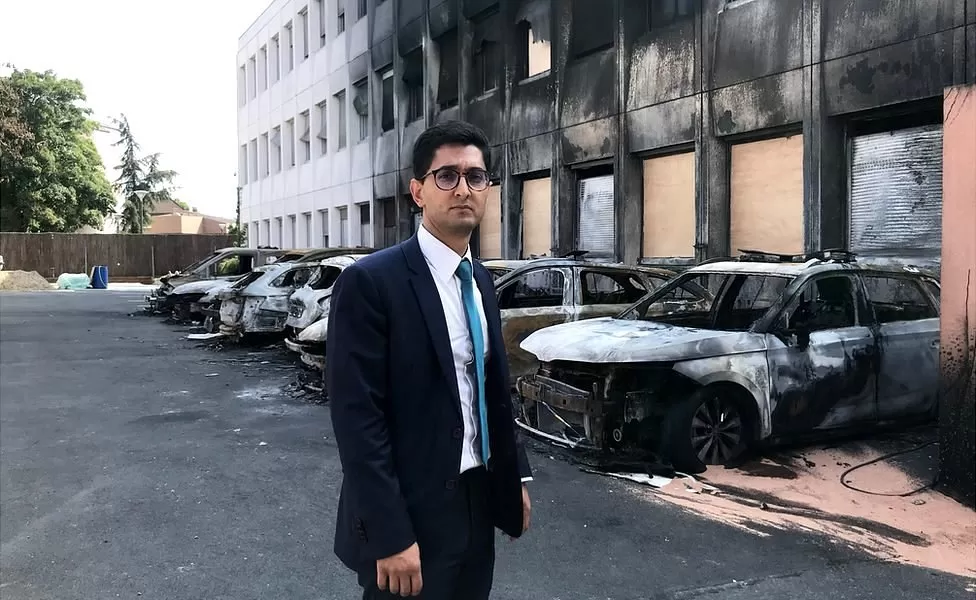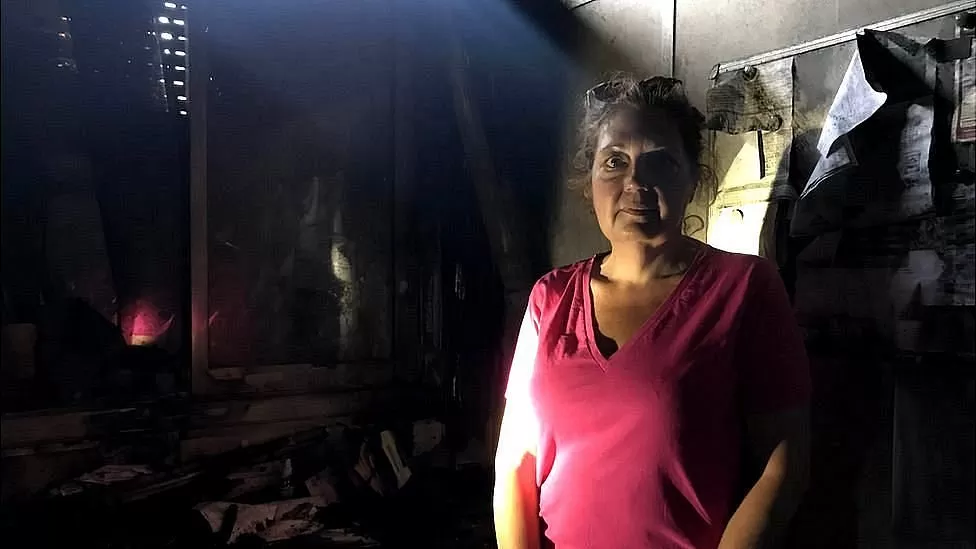France riots: Within days we were in hell, says mayor

Since the riots in France began a week ago, Zartoshte Bakhtiari says he has not slept more than three hours a night.
He’s the mayor of Neuilly-sur-Marne, one of France’s poorest areas, east of Paris by day.
In the evenings, he patrols the streets with a dozen staff and council members until 04:00 or 05:00, acting as a warning system for police dealing with the rioters.
‘Within days, we were in hell,’ he says.
He will meet French President Emmanuel Macron on Tuesday at the Élysée Palace with more than 200 other mayors.
In his request, the state should show “more toughness”, and the local police should be allowed to use drones to monitor town activities.
Throughout the years, politicians have been weak, and decisions have not been taken, he says.
It’s a problem of authority because these [rioters] don’t fear justice. [They] may appear in court, but they return home a few hours after trial simply due to the lack of jail space in this district of Paris.
There is a charred wall of the local police station outside his office in the town hall.
“They jumped over this wall at 1am with a jerrycan of petrol,” Mayor Bakhtiari explains, gesturing to the fleet of seven burned squad cars.
A public housing department in the neighborhood was responsible for finding 2,300 locals homes in the building.
A carbonised shell of melted plastic and ash covers the inside of the office. It is not possible to digitize all the paper files. There are many people in need of housing here whose records have been destroyed by the fire.

In tears, Laurence Tendron Brunet, the housing department’s head, stands among the burnt ruins.
Her voice is stricken with sadness. Right now, there are people who are so desperate for housing. I know about half of them, when they call, I recognize their voices. They aren’t files; they are people.”
According to Mayor Bakhtiari, the arsonists were captured on video surveillance cameras, and from the footage, it appears they are teenagers.
“It’s hard to understand that children destroy things,” Laurence says, “since parents should be responsible for their children at that age.”
An anonymous neighbour, who filmed the fire on his mobile phone, leads us round the back of the building to the car park with its charred police cars.
Upon hearing the arsonists’ suspected ages, he says, “Typical.” Thugs tell 11- and 13-year-olds: “Go ahead; you won’t go to prison.” These tactics are common here, where kids are sent to the front line.
